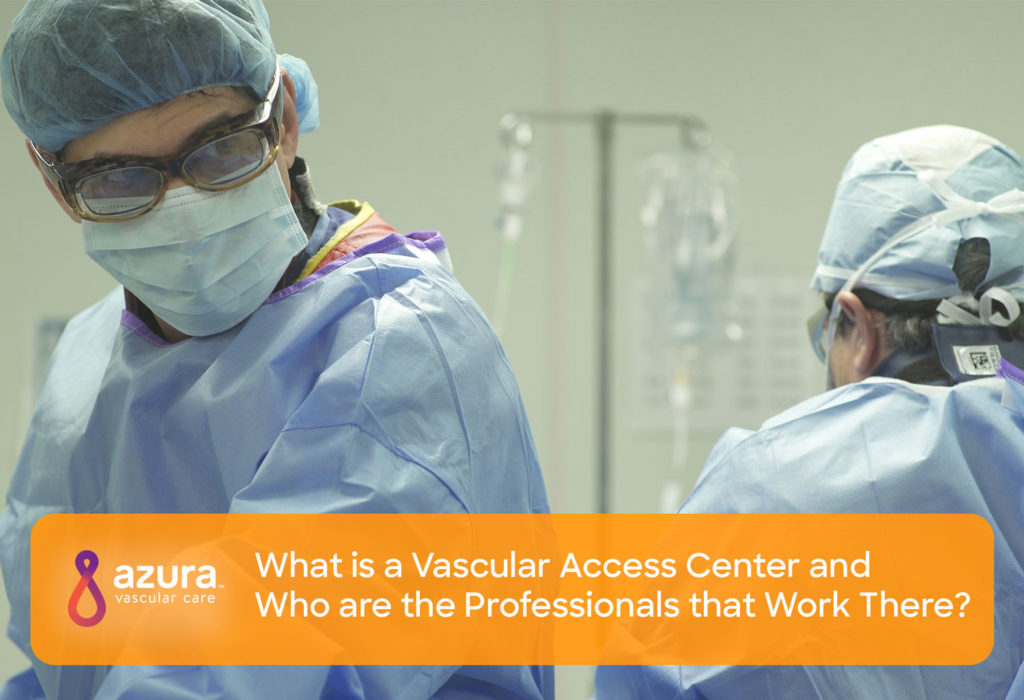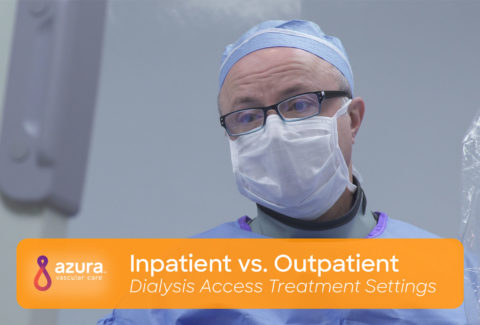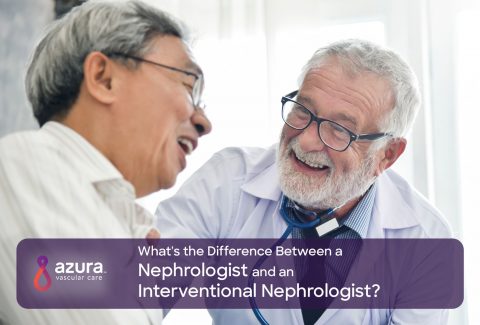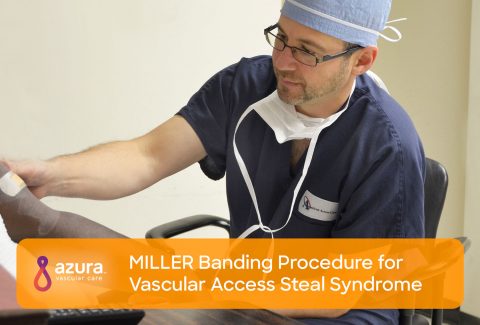
If you’re preparing for your dialysis access procedure, now is a good time to familiarize yourself with the various personnel you’ll likely encounter when you’re at the vascular access center.
What is a Vascular Access Center?
A vascular access center, also known as a vascular center, is an outpatient facility that provides critical care and maintenance to those with a dialysis access and provides state-of-the-art minimally invasive treatments for people with other vascular diseases – diseases of the blood vessels and lymphatic system. Some vascular centers also provide vascular surgery.
Vascular centers employ a wide range of medical professionals from the fields of medicine, vascular medicine, vascular surgery and diagnostic and interventional radiology.
RELATED: What to Expect with Dialysis Access Management in a Vascular Access Center
9 Healthcare Professionals You May Encounter When Visiting a Vascular Access Center
Who you’ll meet at the vascular access center will largely depend on why you’re there — your dialysis access may need its function restored, or you may need treatment for PAD, uterine fibroids or varicose veins. You may not have the opportunity to meet most of the people who keep the vascular center running, but you’re sure to meet several of them, and understanding their roles in your care might help put your mind at ease. Here are a few of the people you might encounter at the vascular access center:
An interventional nephrologist is a doctor who has completed the necessary requirements to specialize in nephrology, the branch of medicine that treats kidney diseases. An interventional nephrologist has completed further education and training to become qualified to perform minimally invasive procedures that involve the care and management of dialysis accesses.
An interventional radiologist is a doctor who has completed the necessary requirements to work in the subspecialty of radiology known as interventional radiology. Interventional radiologists are medical doctors who can perform that employ the use of image-guided, or x-ray technology.
A vascular surgeon diagnoses and manages disorders of the arteries, veins and lymphatic systems. Vascular surgeons provide comprehensive care to patients with vascular disease. They also perform vascular surgery. Vascular surgeons are doctors who have gone on to pursue a specialty in vascular surgery by completing an internship and residency program.
A patient services coordinator is typically the first person you see when you enter the vascular center. This person helps with checking you in, making future appointments and answering your scheduling and insurance questions.
A physician assistant practices medicine as part of a team of doctors. PAs, who are licensed in all states, can examine, diagnose and treat patients, and have typically completed a master’s degree from an accredited program.
Radiology technicians perform diagnostic imaging exams. An associate degree is required, and they are licensed or certified in most states.
Registered nurses are licensed and typically have either a four-year bachelor’s degree in nursing, a two-year associate degree in nursing or they have graduated from an approved nursing program. RNs working at vascular centers are typically certified in Advanced Cardiac Life Support (ACLS) and provide patient care and education.
Surgical technicians are often certified, which allows them to assist doctors and others during surgeries and minimally invasive procedures. Surgical technicians are also known as operating room technicians. In addition to helping in the operating room, these technicians help prepare the surgical suite prior to surgery.
A vascular center manager plans, directs and coordinates the medical and health services at a vascular center. Center managers must be sure their facility conforms to changes in healthcare laws, regulations and technology. Most vascular center managers have at least a bachelor’s degree.
Your healthcare providers play a vital role in providing excellent patient care. In a vascular access center, it takes a team of doctors, nurses and technicians to ensure the best possible outcome for each patient. If you are preparing for a vascular procedure, knowing who you may encounter in a vascular center before you arrive may help you to feel less anxious and afraid.


